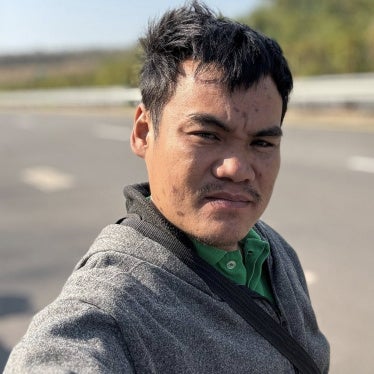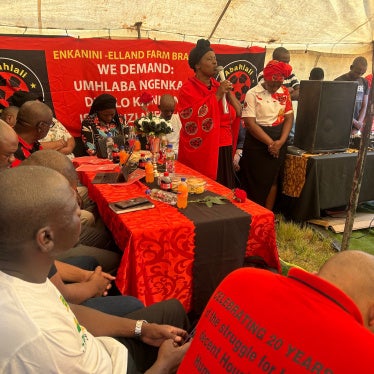(Washington, DC, October 10, 2008) – The governor of Chiapas should ensure a thorough, impartial, and transparent investigation into the deaths of six people and the injuries of 17 others during a police operation in the community of Miguel Hidalgo, Human Rights Watch said today.
On October 3, 2008, police entered the indigenous community to evict residents from a neighboring archaeological site, which they had been occupying for over a month to demand a share of the site’s revenues. There was a confrontation, a second raid, and a violent clash in the course of the day. Human Rights Watch has received credible reports that the police executed four unarmed men and used excessive force in the confrontation.
“What’s needed is an independent and thorough investigation so that those responsible for the killings and other abuses can be prosecuted,” said José Miguel Vivanco, Americas director of Human Rights Watch.
In the first raid, at about 11:00 a.m., about 40 state and municipal police officers entered Miguel Hidalgo, using tear gas on its inhabitants. The community responded by disarming and detaining the officers. At 5:30 pm, 300 additional officers stormed the community using firearms and tear gas, while some community members attacked with sticks and stones.
Augustín Alfaro Alfaro was driving four wounded men to the hospital when his truck was blocked by police and fired upon, said his wife, Eloisa Margarita Espinoza Morales, who witnessed the encounter. Alfaro was wounded and stopped the truck. The police then executed him and three of the wounded men, she said. Two other men allegedly died of gunshot wounds sustained in the raid.
Six police officers have been arrested in connection with the killings. Mexican authorities maintain that residents of the community were illegally occupying land and that several officers were wounded in the confrontation.
“We recognize that the state has a duty to prosecute any community members who broke the law,” said Vivanco. “But as police carry out their law enforcement duties, they too are bound by the law, and above all must respect the basic rights of citizens enshrined in the Mexican constitution and international law – of which the right to life is one of the most fundamental.”








